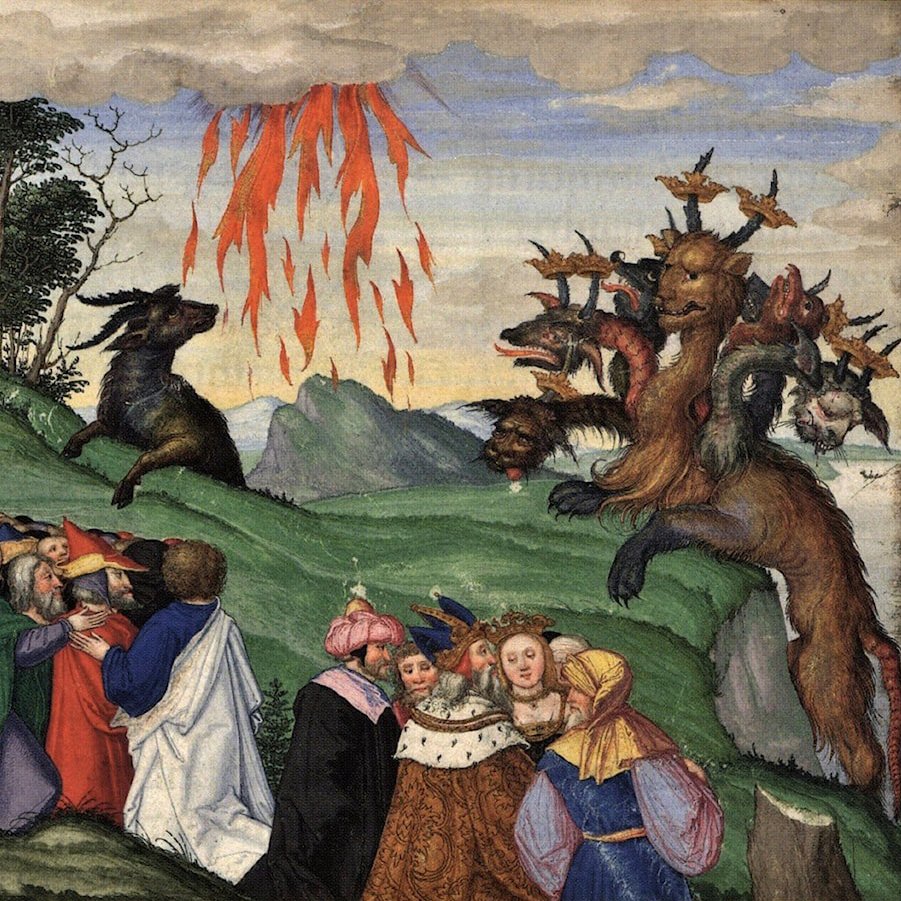The Macabre in Story and Jungian Psychology: The Brush with the Uncanny with Zurich-trained Jungian Analyst Muriel McMahon, beginning November 4



The Macabre in Story and Jungian Psychology: The Brush with the Uncanny with Zurich-trained Jungian Analyst Muriel McMahon, beginning November 4
Taught online via Zoom
Mondays, November 4 - December 9, 2024
7:00 pm - 9:00pm ET
$125.00 General Admission
PLEASE NOTE: All classes will be recorded for those who cannot attend live
Join Zurich trained Jungian analyst, Muriel McMahon, for a six week exploration into the macabre, the grotesque, and the monstrous through the lenses of biblical stories, fairytales, Jungian psychology, and contemporary politics. The interdisciplinary approach allows participants to take a deep dive into the themes of misalignment between spirit and matter and offers a rich tapestry of insights into human nature. We will tap into theories of fear, mortality, and the uncanny.
This course offers a pathway through which we can explore and understand the complex interplay between the dark aspects of human nature and culture, utilizing a wide range of interdisciplinary resources to engage deeply with the material.
Week 1: Introduction to the Macabre and the Grotesque
Objective: Understand the definitions, history, and significance of the macabre and the grotesque in literature, art, and psychology.
Readings:
Excerpts from "The Uncanny" by Sigmund Freud.
Introduction to Jungian psychology - focus on the shadow aspect.
Case Study: Analysis of Jung’s encounter at Ravenna.
Assignment: Reflective journal entry on personal encounters with the macabre or grotesque.
Week 2: Biblical Stories and the Monstrous
Objective: Explore biblical narratives that deal with monsters, demons, and divine punishments to understand ancient perspectives on evil and misalignment.
Readings:
Selections from the Book of Genesis (e.g., the story of the Nephilim, the Tower of Babel).
Book of Revelation excerpts (imagery of the apocalypse and the beast).
Discussion: How do these stories reflect the tension between spirit and matter?
Assignment: Comparative analysis of a biblical story and a contemporary political event through the lens of the monstrous.
Week 3: Fairytales and the Shadow Self
Objective: Investigate how fairytales use grotesque and macabre elements to represent the shadow self and moral lessons.
Readings:
Selections from fairytale: Grimms, Anderson, Yeats, and von Franz.
The Uses of Enchantment by Bruno Bettelheim, and Shadow and Evil in Fairytales, by von Franz focusing on the psychological significance of fairy tales.
Discussion: Group discussion on different fairy tales, focusing on the manifestation of the shadow and its resolution.
Assignment: Write a modern fairytale or rewrite a familiar one incorporating Jungian psychology concepts.
Week 4: Jungian Psychology and the Collective Unconscious
Objective: Delve deeper into Jungian psychology to understand the collective unconscious and its archetypes as manifested in myths, art, and literature.
Readings:
"Archetypes and the Collective Unconscious" by Carl Jung.
Analysis of modern myths (e.g., superheroes) through a Jungian lens.
Discussion: The role of the monstrous in the process of individuation and societal evolution.
Assignment: Analyze a piece of contemporary art or film that deals with the grotesque, using Jungian psychology.
Week 5: Contemporary Politics and the Monstrous
Objective: Examine how contemporary political discourse and events evoke the macabre and monstrous, reflecting societal fears and the shadow self.
Readings:
Case studies on the use of monstrous imagery in political propaganda.
In Frankenstein's Shadow: Myth, Monstrosity, and Nineteenth-Century Writing by Chris Baldick
Discussion: The impact of political monsters on collective psychology and societal health.
Assignment: Create a collage of contemporary monstrosities.
Week 6: Conclusion and Integration
Objective: Integrate the knowledge gained throughout the course to understand the broader implications of the monstrous in human culture.
Readings:
The Far Side of Madness, by John Weir Perry and John Beebe
Activities:
Group discussion on the role of the artist, writer, and psychologist in exploring and integrating the personal and collective shadow.
Final Project: Share with the group a piece of art, a short story, or a psychological case study that encapsulates the course's themes.
Muriel McMahon is a Zurich-trained Jungian analyst, a registered psychotherapist, and a Keeper of Stories. She has studied and taught internationally on the innate wisdom of dreams, fairy tales and traditional indigenous cultures. Her clinical acumen and attunement to the deep unconscious is well practiced and founded on deep scholarship and academic study in dreams, archetypal patterns and unconscious communication.
Images:
Heinrich Lefler and Joseph Urban, Godfather Death, Grimms’ Fairy Tales, 1919
Little Red Riding Hood, Gustave Doré c. 1862
From the Book of Revelation, Matthias Gerung, 1532
